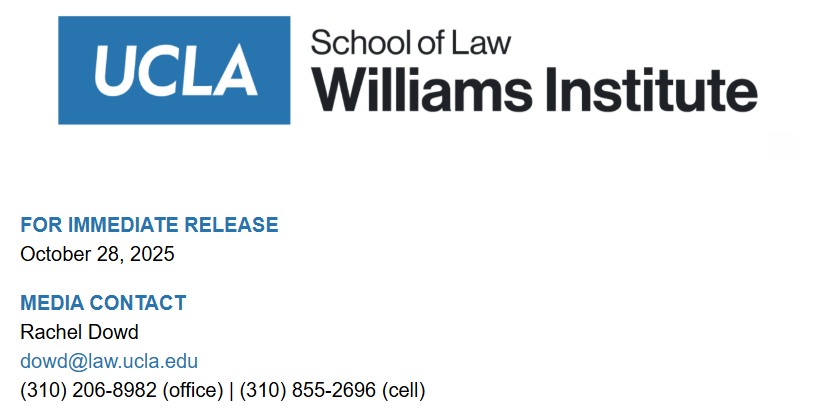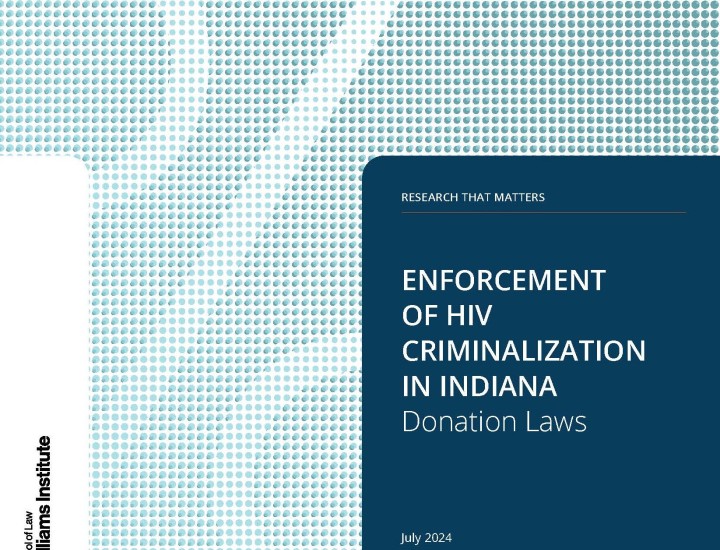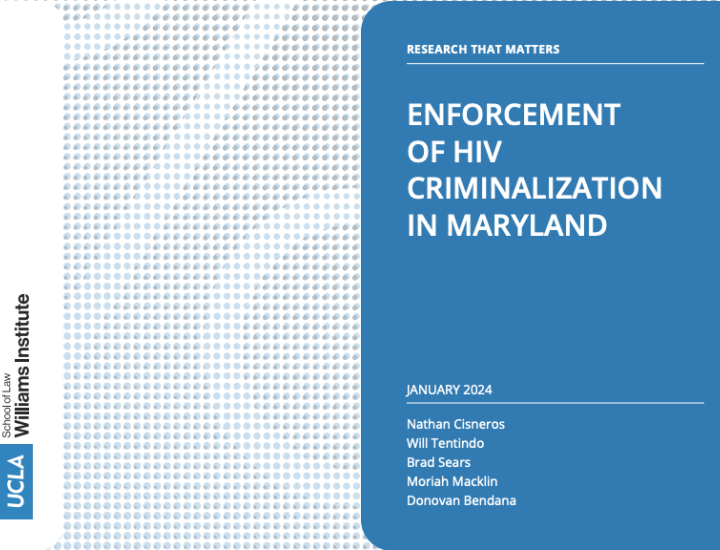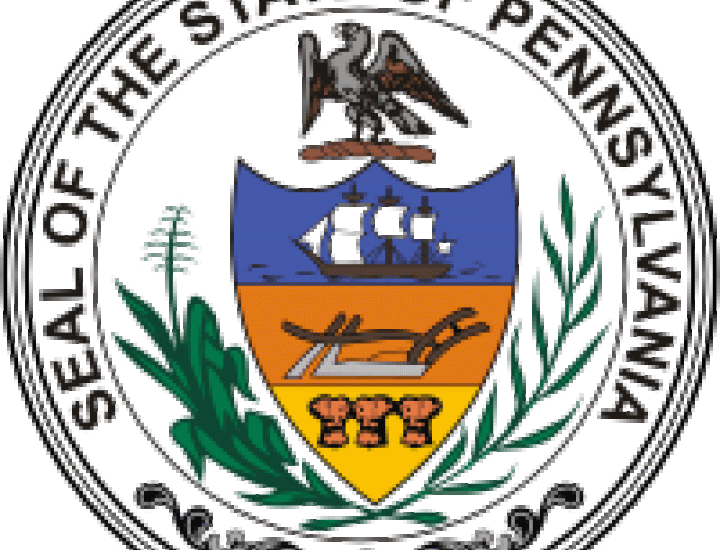Published October, 2025
API and white women disproportionately charged with HIV-related prostitution crimes in Pennsylvania, Williams Institute UCLA School of Law, October 2025

API and white women disproportionately charged with HIV-related prostitution crimes in Pennsylvania
Pennsylvania has several laws that criminalize or enhance criminal penalties for certain behaviors of people living with HIV. Three of those laws enhance penalties for “prostitution and related offenses” based on a person’s HIV status.
Since 2015, there have been at least 78 HIV-related criminal cases for “prostitution,” “promoting prostitution,” or “patronizing prostitutes” in Pennsylvania, averaging about eight cases per year, according to a new report by the Williams Institute at UCLA School of Law. About 12% of these cases resulted in a conviction.
The state’s HIV-related prostitution and related offenses laws are disproportionately enforced based on gender and race. Women, especially white and Asian and Pacific Islander (API) women, appear to have been targets for enforcement.
Women accounted for 53% of all individuals involved in criminal cases and 67% of convictions stemming from HIV-related prostitution offenses, yet they represent only 28% of people living with HIV (PLWH) in Pennsylvania. Despite making up just 5% of PLWH in the state, white women comprised 29% of prostitution-related HIV criminal cases. Similarly, API women constituted only 0.2% of PLWH but accounted for 10% of HIV criminal cases.
Disparities were even more pronounced at the conviction stage, with white and API women accounting for half (50%) of all convictions for HIV-related prostitution and related offenses charges.
Researchers analyzed data obtained from the Administrative Office of Pennsylvania Courts, which provided information on individuals who had contact with the state’s Magisterial District Judge system or Courts of Common Pleas under Pennsylvania’s HIV-related prostitution statutes.
Findings show that the enforcement is geographically concentrated in southeastern Pennsylvania, with Philadelphia, the state’s most populous county, accounting for the largest share (40%) of all cases.
HIV criminalization is a term used to describe laws that either criminalize otherwise legal conduct or increase the penalties for illegal conduct based on a person’s HIV-positive status. Nearly two-thirds of U.S. states and territories currently have laws that criminalize people living with HIV.
In Pennsylvania, HIV is criminalized through specific HIV criminal laws, broader contagious disease statutes, and general criminal laws. The current report examines the state’s HIV-related Prostitution and Related Offenses statute, which includes charges of “prostitution,” “promoting prostitution,” or “patronizing prostitutes.” It is the only law in Pennsylvania that explicitly increases penalties to a felony based on a person’s HIV-positive status.
While both selling and purchasing sex are criminalized in Pennsylvania, the overwhelming majority of prosecutions (94%) targeted the person selling sex.
“Prosecution of general prostitution offenses in Pennsylvania has dropped significantly in recent years, but cases involving HIV-related prostitution laws have not shown the same decline,” said lead author Jordan Grasso, Research Data Analyst at the Williams Institute. “Our findings also show that enforcement is disproportionately concentrated among specific demographic groups and geographic areas, suggesting factors beyond HIV prevalence and public health may play a part in enforcement of these laws.”
Additional Findings
All cases that included a charge for patronizing prostitutes with available gender information involved men. None of these cases resulted in standing convictions.
The average age at arrest for people convicted of HIV-related prostitution and related offenses was 46 years old, compared to 30 years old for those convicted solely of non-HIV-related offenses.
Women were disproportionately represented in HIV-related prostitution cases relative to their share of people living with HIV, while men were overrepresented compared to their share of prostitution cases overall.
From 2021 to 2024, men accounted for an average of 14% of annual prostitution cases but 42% of those with HIV enhancements.
This report is part of a series of reports examining the ongoing impact of state HIV criminalization laws on people living with HIV.
Copyright Information: CHLP encourages the broad use and sharing of resources. Please credit CHLP when using these materials or their content. and do not alter, adapt or present as your work without prior permission from CHLP.
Legal Disclaimer: CHLP makes an effort to ensure legal information is correct and current, but the law is regularly changing, and the accuracy of the information provided cannot be guaranteed. The legal information in a given resource may not be applicable to all situations and is not—and should not be relied upon—as a substitute for legal advice.


